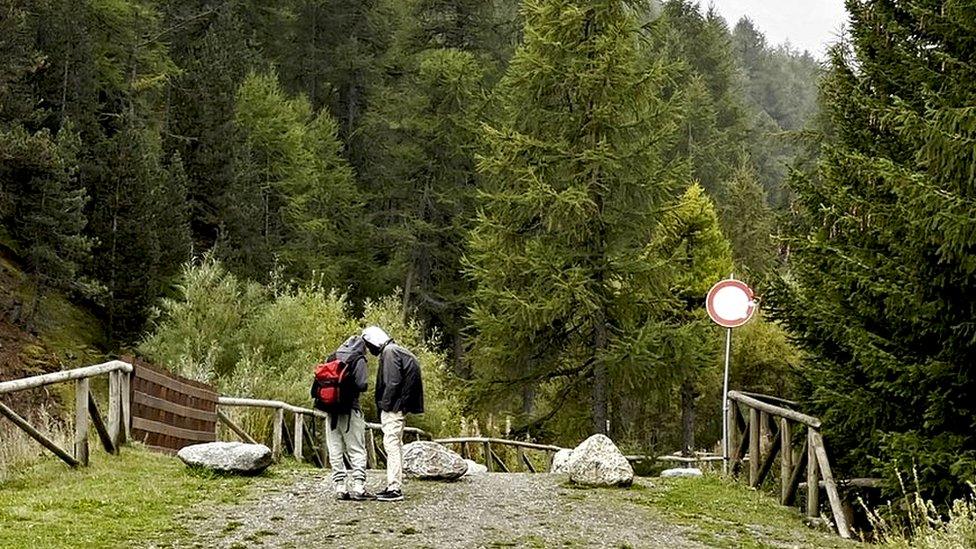Migrant crisis: Sunak urges Europe-wide solutions at summit in Granada
- Published
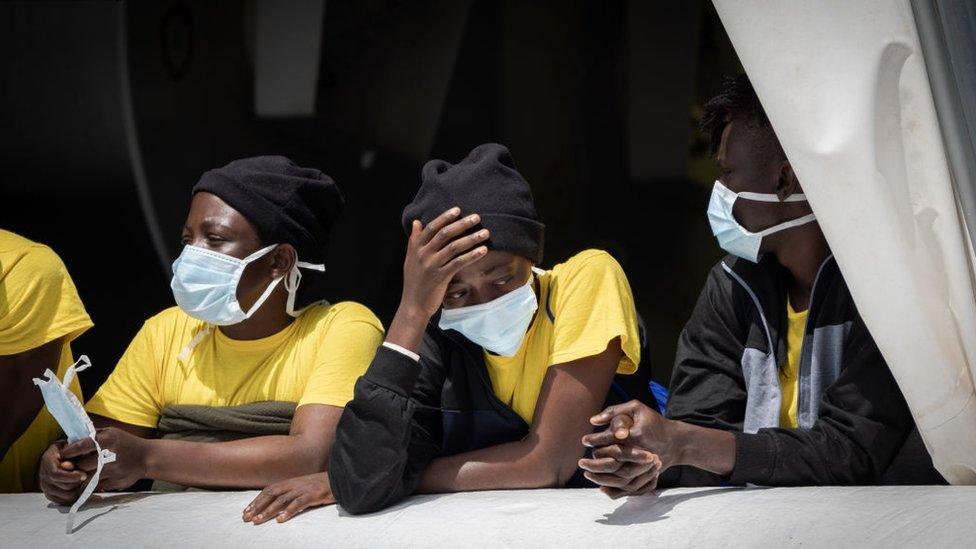
Migrants at the Italian port of Brindisi last month
Rishi Sunak has called for more co-ordinated European action to tackle the rising numbers of irregular migrants arriving on the continent's borders.
At a special summit of European leaders in Spain, the prime minister said the situation was "immoral and unsustainable".
He demanded "creative Europe-wide solutions" to the continent's migration crisis, which for him means tackling people smugglers and tightening borders.
On Thursday, the prime minister called on European leaders to act with the "same sense of urgency" in tackling illegal migration, in a joint article with Italian Prime Minister Giorgia Meloni in The Times, external.
The pair said that the "current approach is not working" and "closer co-operation and tougher measures to crack down on the people smugglers" are needed.
Italy has already seen more than 100,000 migrants land on its shores this year - five times as much as the UK.
At the summit, Mr Sunak co-chaired a leaders' meeting with Meloni, and he agreed deals with the leaders of Belgium, Bulgaria and Serbia to disrupt criminal networks by sharing more intelligence and co-operating more at an operational level. Serbia in particular is a key transit country for many migrants entering Europe.
The summit of 47 EU and non-EU leaders is a gathering of what's called the European Political Community, a new body set up last year in the wake of Russia's invasion of Ukraine. Its chief focus is to discuss the war but it is also an opportunity for leaders to have wider, more informal discussions.
Although Mr Sunak used his party conference speech on Wednesday to argue against Britain aligning more closely with the European Union, he does appear more willing to co-operate with broader European partners on immigration, one of his key electoral priorities.
He has promised to stop the small boats containing migrants arriving across the English Channel. Although numbers are down compared to last year, more than 20,000 people have already arrived so far this year.
What is not clear yet is how many European leaders share Mr Sunak's priorities and whether more collective action might be possible. EU countries in particular have often struggled to agree how to share the burdens of migration.
The EU on Wednesday did agree to reform its internal asylum rules to make it easier for countries like Italy and Greece to get help from other members of the bloc when there is a surge in irregular migration. And diplomats say that some EU countries - including Spain - also want to discuss new methods of legal migration.
But Mr Sunak's focus is on addressing what he says are the root causes of the problem, namely criminal people smugglers, and that would require more co-ordinated action by non-EU as well as EU countries.
In remarks released by Downing Street ahead of the summit, Mr Sunak said: "Levels of illegal migration to mainland Europe are the highest they have been in nearly a decade. With thousands of people dying at sea, propelled by people smugglers, the situation is both immoral and unsustainable. We cannot allow criminal gangs to decide who comes to Europe's shores.
"When it comes to facing down the threat from [Russian President Vladimir] Putin, confronting the risks and opportunities of AI or dealing with illegal migration, there is strength in unity.
"These issues transcend national borders and require creative Europe-wide solutions - that is what I will be discussing with my fellow leaders at the European Political Community summit in Spain today."
Mr Sunak also announced further humanitarian aid for Ukraine and discussed ways Western allies can help the country boost its grain exports.
The Foreign Office has released intelligence, external which, it claims, shows Russia is preparing to lay sea mines outside Ukrainian ports.
The aim, the Foreign Office says, is to deter the export of Ukrainian grain by targeting civilian shipping travelling through the Black Sea.
- Published4 October 2023
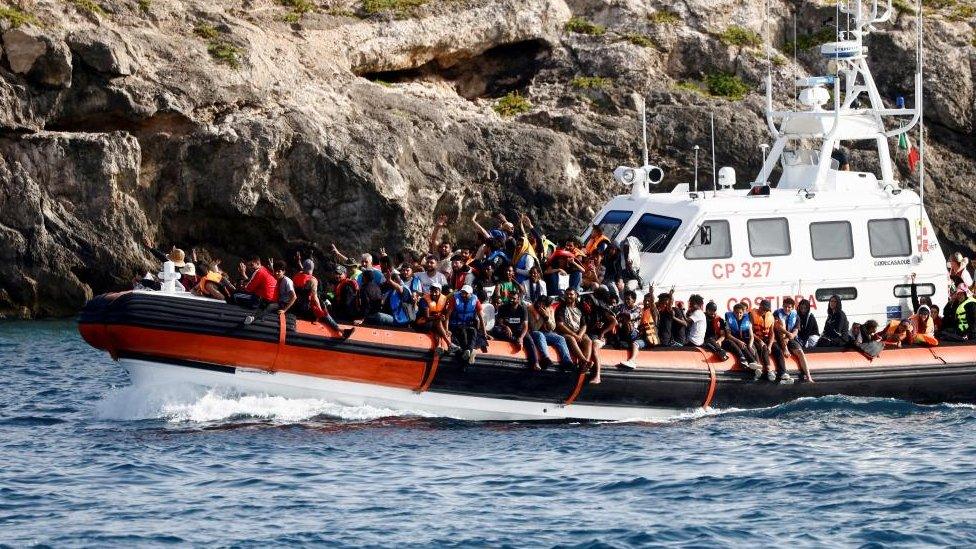
- Published3 September 2023
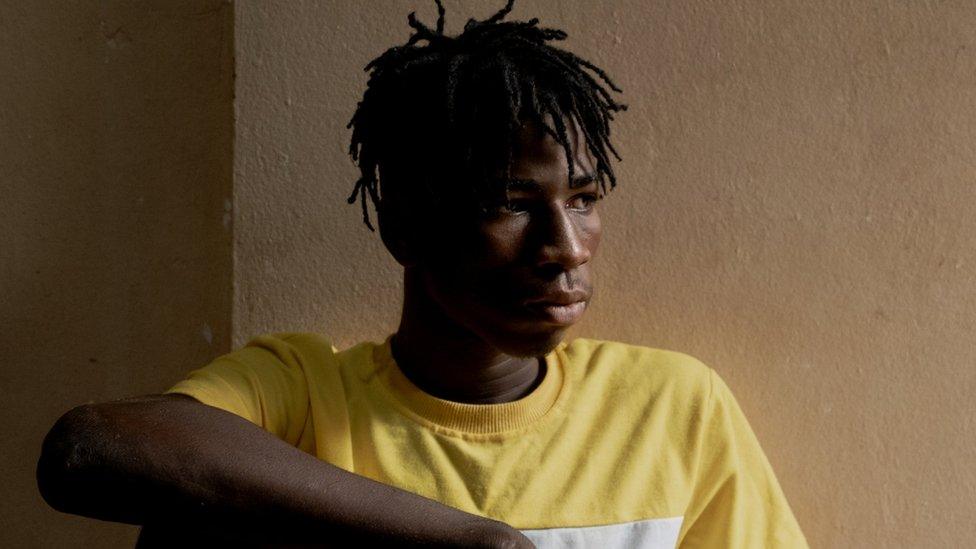
- Published11 July 2023
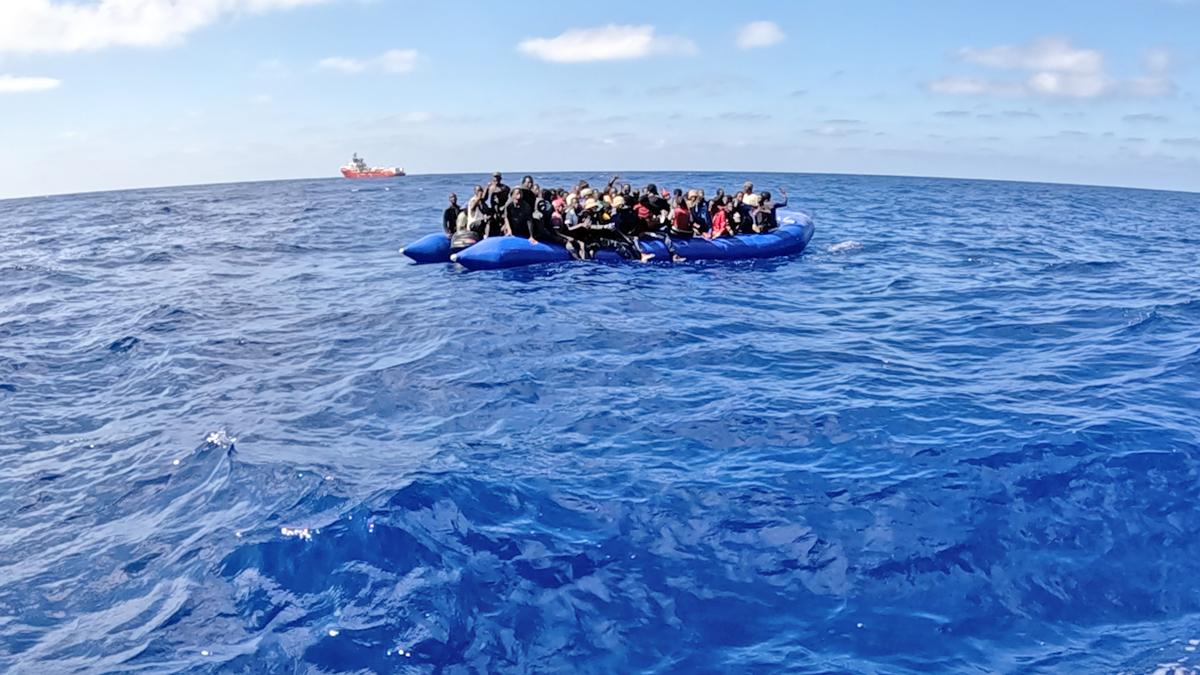
- Published2 October 2023
